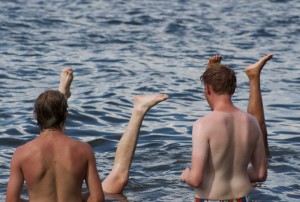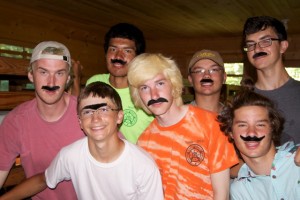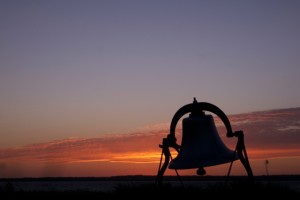The Laketrails Philosophy
A Life
Living is an art. At Laketrails we believe we’re teaching a way of life–living and learning together. So, does this life–this program–do anything for young people? We feel strongly that it does. It is difficult to verbally communicate the value of the arts. Is it possible to explain the beauty of a picture, a piece of music, or a sunset? These things have to be experienced to be appreciated. In the same way, a way of life has to be lived to be understood. Closeness to natural beauty and the basic elements of biological life, the achievement of skills learned, companionship–laughing, singing, playing, working, and praying together–these are some of the things that make up our way of life. We know this way of life carries an educational impact that is hard to surpass.
Community
Community means fellowship and a sharing of life. It is part of the Laketrails Idea that personality develops in community rather than in institutions. The quantity of material resources is relatively insignificant in comparison with the quality of human relations. Laketrails is a community of human spirit rather than a collection of fancy buildings. The buildings and equipment on the base camp island are merely adequate tools for the development of human personalities.
-

Swimming
-

Mustache Crew
-

Sunset Bell
The Person
At its core, the Laketrails Idea is a very conscious reaction to the modern impersonal treatment of human beings. In many cases in business, in education, and even in religion, people are used as though they were nothing more than objects to be manipulated, indoctrinated, analyzed, bought, and sold. Beneath the outer layers of Laketrails life–administration, program activities, staff education–lie these fundamental themes: the person is most important; personal integrity and dignity must not be violated; and honest human relations are indispensable for the development of a sound personality. Personality has a spiritual quality that lies outside the reach of scientific instruments and investigation. In all the universe of nature, personality lies nearest in kinship to God.
Acceptance
Although education is self-improvement, the aid of others is usually a necessary condition for such improvement. Genuine acceptance on the part of the educator is the most fundamental condition for aiding the education of another person. A guide, whether parent, teacher, or counselor cannot aid in the improvement of a person whom he cannot accept. In other words, the first personal aim of the educator is the unconditional acceptance of each person he or she meets–acceptance of the person as an individual human being in spite of the weaknesses or faults that might be foreseen or detected.
Program Activities
A camping program for high school students has to be big. It has to offer challenges and real adventure. Pretending adventure is not enough. For a teenager, a patch of woods will not substitute for wilderness. For this person, the presence of an occasional squirrel or rabbit does not mean the same thing as wildlife. Laketrails is situated in a wilderness area because a successful camping program for teens has to really have the setting. The camp was named Laketrails Base Camp because that name is descriptive of the program–trips on the water trails of Lake of the Woods. Laketrails offers the beauty of God’s wilderness. Another Laketrails goal is to help young people to appreciate this creation, to live in harmony with it, and to work to save these wonders for future generations. “The Creator has made the world. Come and see it!”
